Aquilegia vulgaris - Columbine
Phylum: Magnoliophyta - Class: Equisetopsida - Order: Ranunculales - Family: Ranunculaceae
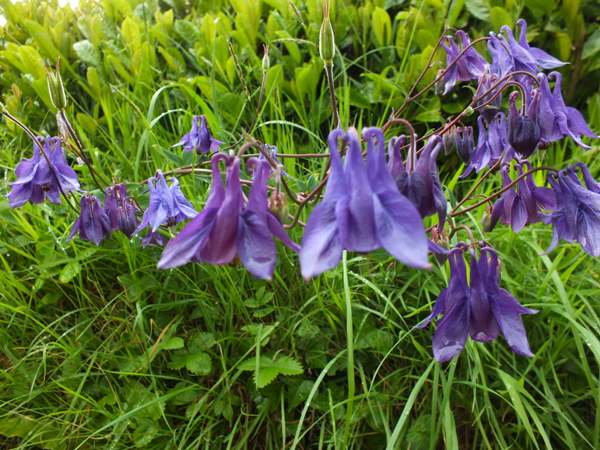
Often referred to merely as Aquilegia, Columbine is the other common name for this wildflower, which is a perennial herb growing to a height of 1.2m. Its stems are slightly hairy, and the distinctive trefoil leaves are instantly recognisable: they have three leaflets with a variable number of asymmetrical rounded lobes.
The flowers used to be known as 'granny bonnets', because of their hat-like form. They droop downwards at the ends of curved stalks, with five outer tepals (the sepals) and an inner trumpet of petals of each with has a nectar-bearing hook-shaped spur that with a rounded end that points downwards to the top of the flower. From the centre of each flower a bunch of white stamens hangs downwards and terminates in cream coloured anthers.
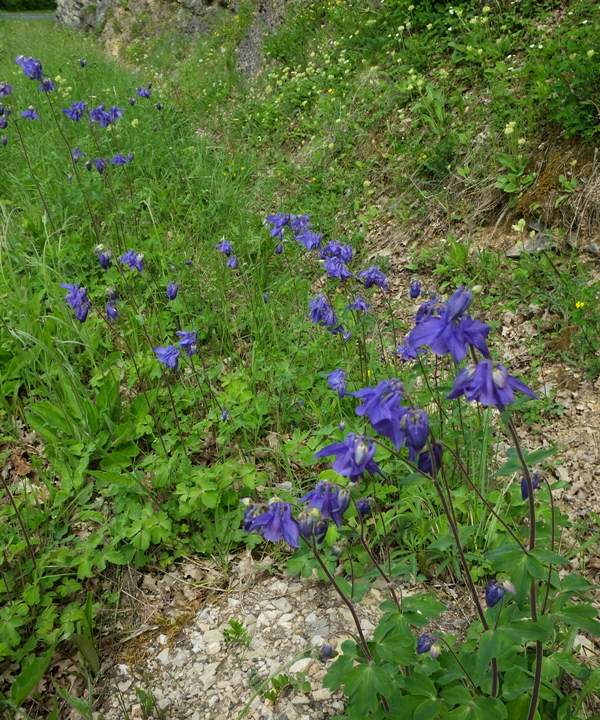
Above: Aquilegia vulgaris on a roadside in southern France
Distribution
Aquilegia vulgaris is found throughout most of Europe. It is a native plant in Britain and Ireland, but many of those now seen in the wild are cultivated flowers that have been introduced into the countryside. You might, therefore, see many colours other than the common purple form or the rare white form of the native wild Columbine.
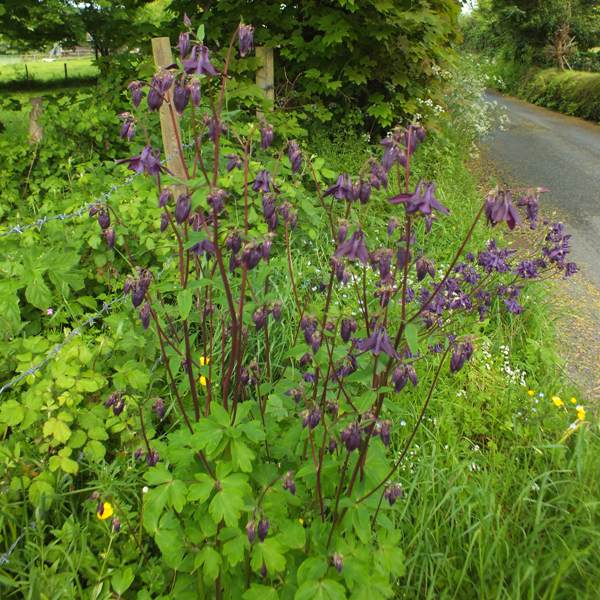
Habitat
Like so many members of the family Ranunculaceae, this plant loves damp, shady places and is often to be found on woodland edges and beside tree-lined country lanes; however, in gardens these plants cope very well in dryish soils provided that they are in at least partial shade.
Flowering times
The flowers of wild Aquilegia vulgaris can be seen from late spring through to mid summer.
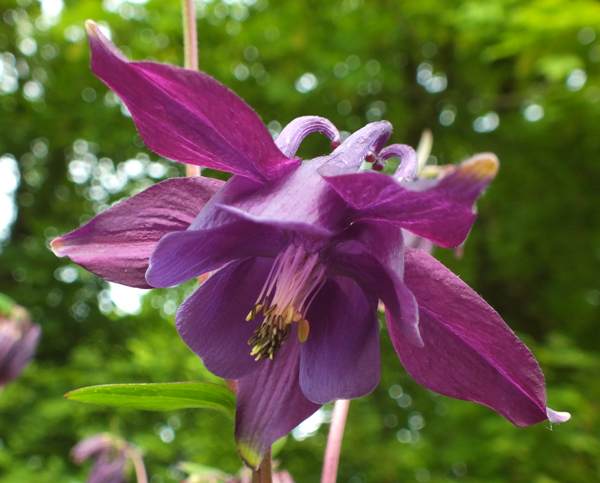
Etymology
The genus name Aquilegia comes from the Latin noun Aquila, meaning eagle, in the belief that the shape of the petals are reminiscent of the wings of an eagle. The specific epithet vulgaris means 'common'.
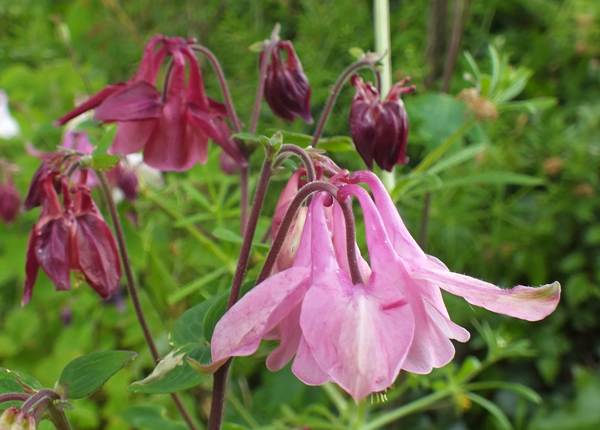
White, pink and blue Aquilegia are commonly found in the wild throughout the UK and much of northern and southern Europe, including Slovenia where we have seen this species many times.
Sue Parker's latest ebook is a revised and enlarged second edition of the acclaimed Wildflowers in the Algarve - an introductory guide. Full details here...
Buy it for just £3.95 on Amazon...
Please Help Us: If you have found this information interesting and useful, please consider helping to keep First Nature online by making a small donation towards the web hosting and internet costs.
Any donations over and above the essential running costs will help support the conservation work of Plantlife, the Rivers Trust and charitable botanic gardens - as do author royalties and publisher proceeds from books by Pat and Sue.



